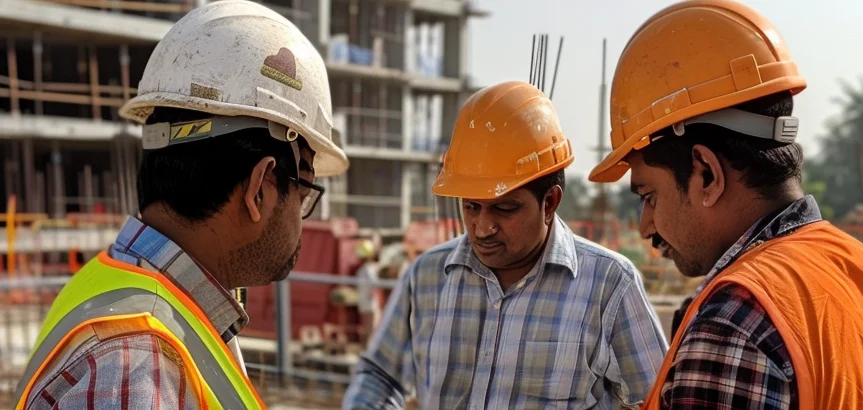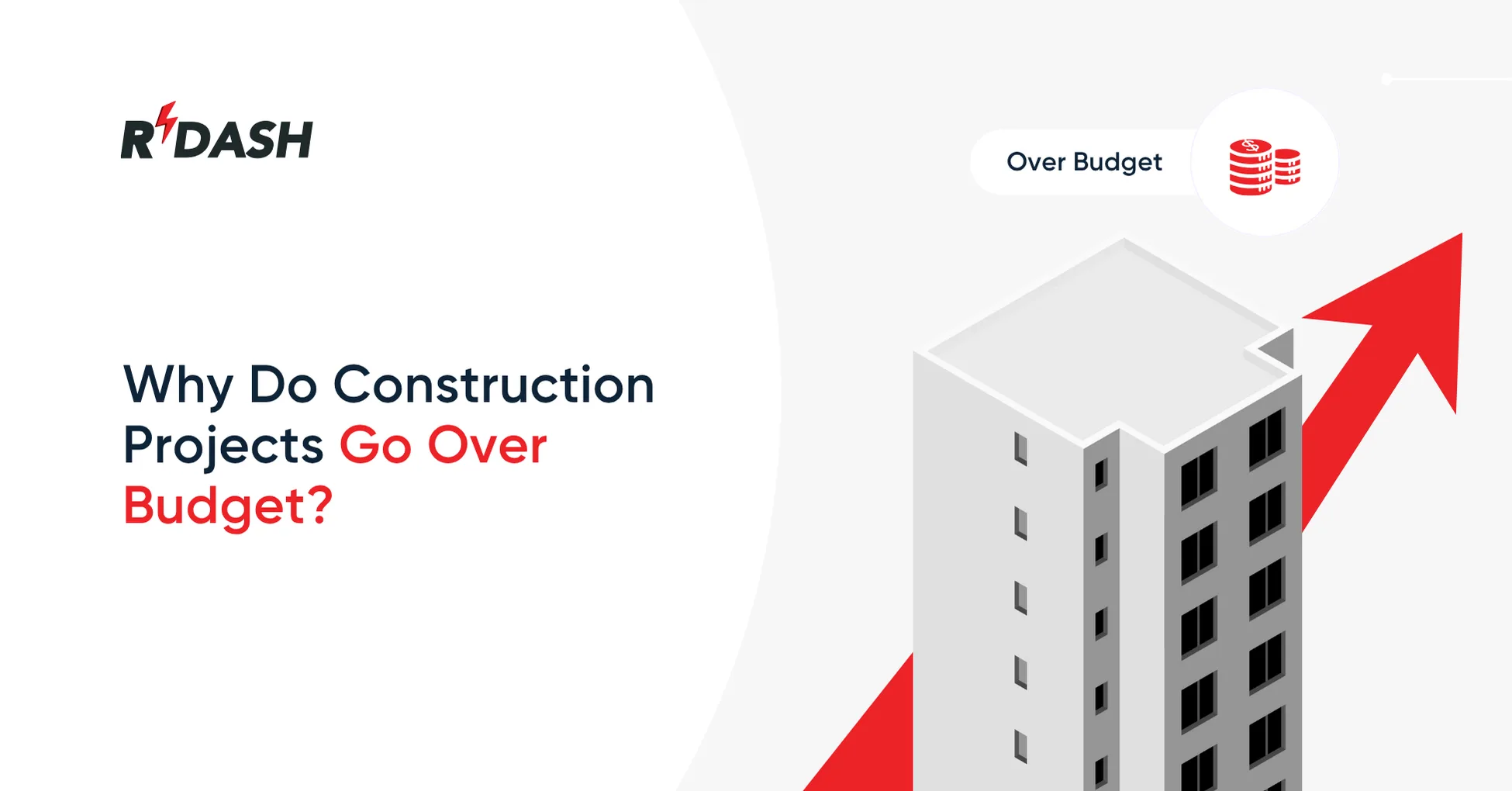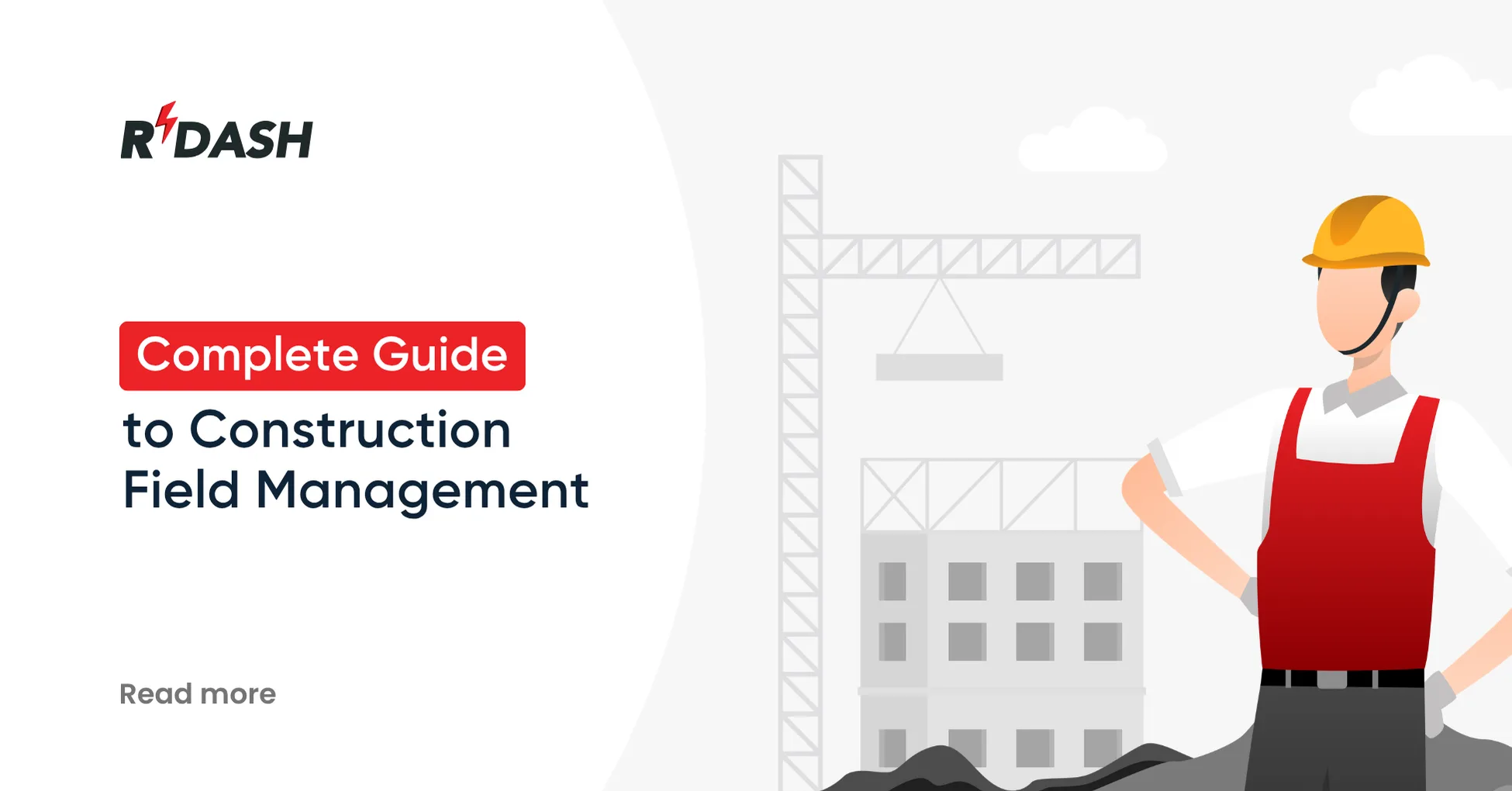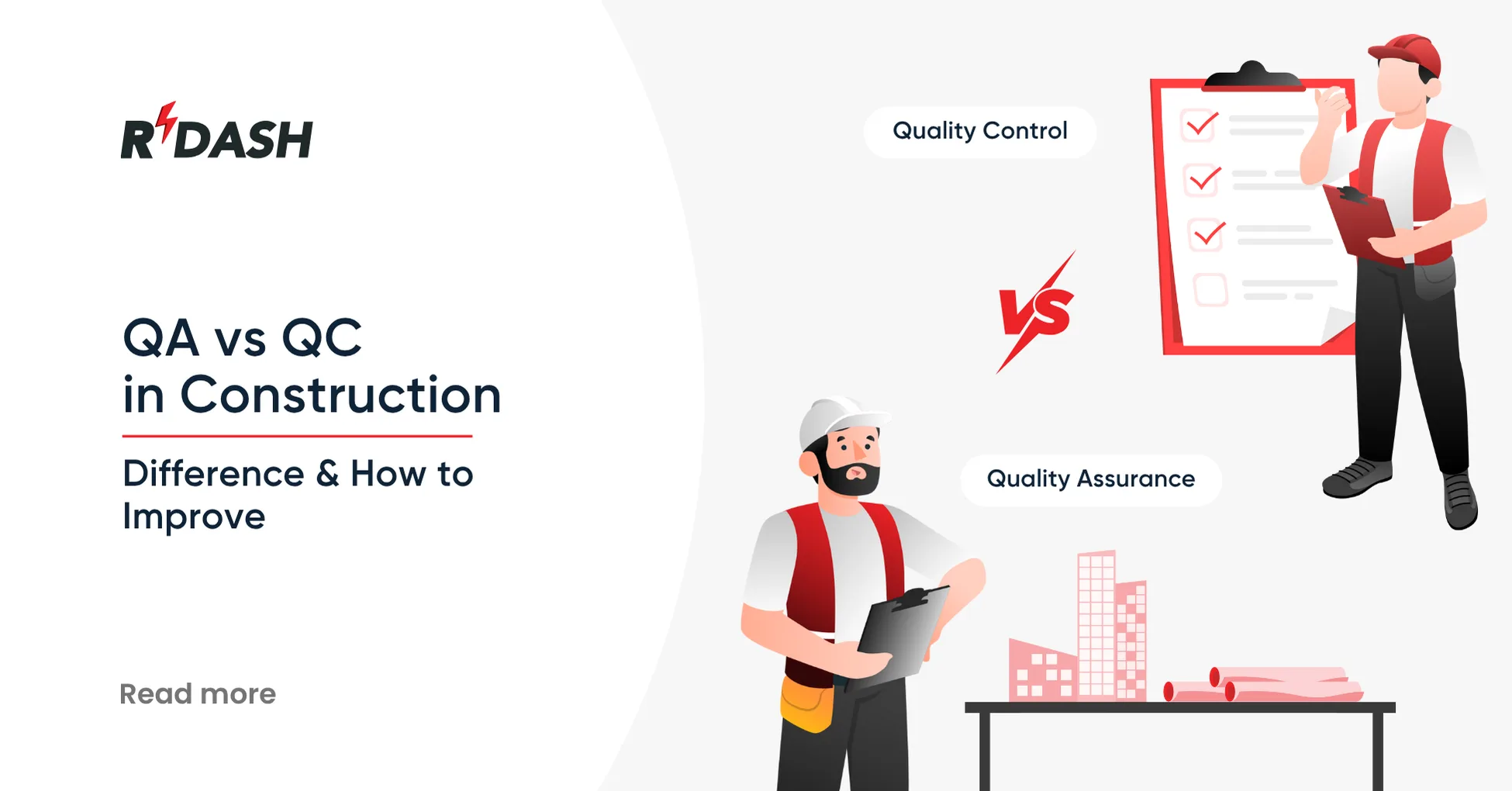The construction industry is a complex and multifaceted sector, often characterized by its intricate project management, rigorous timelines, and significant financial investments. In this demanding environment, efficiency and precision are paramount. To achieve these goals, many construction companies are turning to Enterprise Resource Planning (ERP) software, a powerful tool that streamlines processes, enhances productivity, and ultimately drives business success.
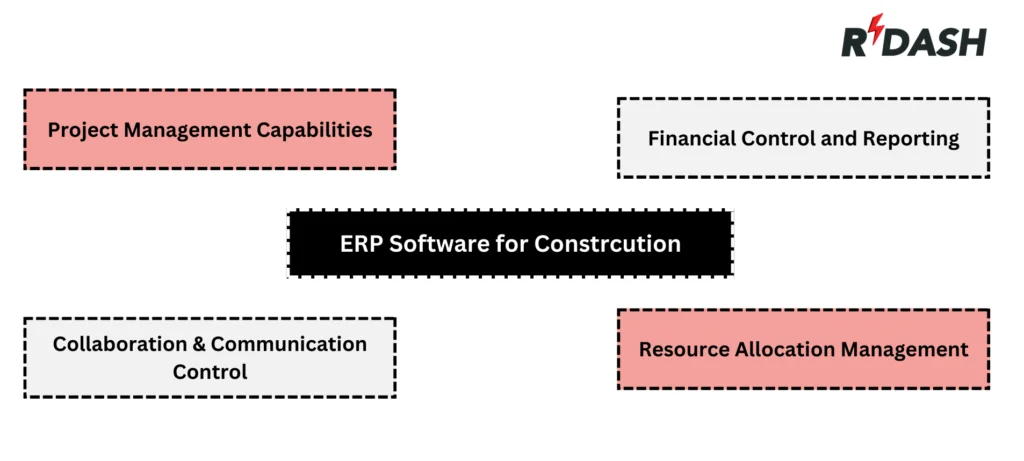
ERP software is a comprehensive system designed to integrate and manage all the essential functions of a business. For construction companies, this means consolidating various operations—such as project management, procurement, accounting, and human resources—into a single unified platform. By doing so, ERP software provides a real-time, 360-degree view of all ongoing projects, enabling informed decision-making and efficient resource allocation.
The Role of ERP Software in the Indian Construction Industry
India’s construction sector is one of the largest in the world, contributing significantly to the country’s GDP. However, the industry is also notorious for its challenges, including project delays, cost overruns, and resource mismanagement. In this context, ERP software has emerged as a vital tool for addressing these issues and enhancing operational efficiency.

- Project Management: ERP software enables construction companies to manage projects more effectively by providing real-time updates on progress, budget, and resource allocation. This ensures that projects are completed on time and within budget, minimizing the risk of delays and cost overruns.
- Financial Management: One of the critical challenges in construction is managing finances effectively. ERP software offers robust financial management tools that help track expenses, manage budgets, and generate accurate financial reports. This allows companies to maintain financial control and ensure profitability.
- Supply Chain Management: The construction industry relies heavily on a complex supply chain involving multiple vendors and suppliers. ERP software helps streamline supply chain operations by automating procurement processes, managing vendor relationships, and ensuring timely delivery of materials.
- Human Resources Management: Managing a large workforce is another challenge in construction. ERP software simplifies HR processes by automating payroll, tracking employee attendance, and managing workforce allocation. This ensures that the right resources are available at the right time, improving overall productivity.
- Compliance and Reporting: The construction industry is subject to various regulatory requirements and compliance standards. ERP software ensures that companies adhere to these regulations by automating compliance processes and generating accurate reports for regulatory authorities.
Benefits of Implementing ERP Software in Construction
The implementation of ERP software in construction offers numerous benefits, making it an indispensable tool for companies aiming to improve efficiency and competitiveness.

- Increased Efficiency: By automating routine tasks and providing real-time data, ERP software significantly enhances operational efficiency. This allows companies to complete projects faster and with fewer resources, leading to increased profitability.
- Improved Collaboration: ERP software facilitates better communication and collaboration among different departments within a construction company. By providing a centralized platform for sharing information, ERP software ensures that all stakeholders are on the same page, reducing the risk of miscommunication and errors.
- Enhanced Decision-Making: With access to real-time data and analytics, construction companies can make informed decisions quickly. ERP software provides insights into project performance, financial health, and resource allocation, enabling companies to identify potential issues early and take corrective action.
- Scalability: As construction companies grow, their operational needs become more complex. ERP software is highly scalable, allowing companies to add new modules and features as their business expands. This ensures that the software remains relevant and continues to meet the company’s evolving needs.
- Cost Savings: While the initial investment in ERP software can be significant, the long-term cost savings are substantial. By improving efficiency, reducing waste, and minimizing errors, ERP software helps construction companies save money and increase profitability.
RDash: A Revolutionary Tool for Construction Management
RDash is a cutting-edge construction management app that has been designed to address the unique challenges faced by the Indian construction industry. It integrates seamlessly with ERP systems, providing a comprehensive solution for managing all aspects of a construction project, from site surveys to project handover.

- Recce (Site Survey): RDash simplifies the site survey process by providing a checklist-based approach to capturing all necessary details. This ensures that no critical information is missed during the initial site visit, reducing the need for multiple surveys and saving valuable time at the start of the project.
- Design Management: RDash enhances design coordination by integrating with popular design software like AutoCAD, SketchUp, and Revit. It ensures that all stakeholders have access to the latest versions of design files, minimizing the risk of errors and rework due to outdated information.
- BOQ Management: RDash streamlines the creation and management of Bills of Quantities (BOQs), ensuring that all project costs are accurately tracked and documented. This reduces the risk of revenue leakage and ensures that projects remain profitable.
- Order and Procurement Tracking: RDash provides real-time visibility into the procurement process, helping project managers track orders, manage vendors, and ensure that materials are delivered on time. This is particularly important for managing long lead items, which can cause project delays if not properly coordinated.
- Work Progress Monitoring: With RDash, project managers can monitor work progress in real time, using Daily Progress Reports (DPRs) that include site photographs, installed work progress, and manpower counts. This level of transparency ensures that projects stay on track and that any issues are addressed promptly.
- Snag and Audit Management: RDash helps manage the snagging process by providing tools for recording, tracking, and resolving any issues that arise during the project handover. This ensures that clients are satisfied with the final outcome and reduces the risk of disputes.
- FINANCE: Many contractors struggle to accurately track their gross margins on projects. We faced this challenge in our first year at 91Squarefeet. During project execution, changes in scope, fluctuating material prices, untracked expenses, and other factors often lead to significant discrepancies between expected and actual margins. Reconciling these costs typically requires extensive coordination among the project team, yet it often drags on for months, creating risks, especially when scaling rapidly.
Real-Life Examples of ERP Success in Construction
The successful implementation of ERP software has transformed the operations of several construction companies worldwide. Here are a few examples of how ERP software has made a significant impact on construction projects:
- Larsen & Toubro (L&T): One of India’s largest construction companies, L&T implemented SAP ERP to streamline its operations. The software helped the company manage its vast portfolio of projects more effectively, reducing project delays and improving overall efficiency.
- Shapoorji Pallonji Group: Another major player in the Indian construction industry, Shapoorji Pallonji, adopted Oracle’s ERP solution to enhance its project management capabilities. The software enabled the company to manage complex projects more efficiently, resulting in significant cost savings and improved project delivery.
- Tata Projects: Tata Projects, a subsidiary of Tata Group, implemented Microsoft Dynamics 365 to improve its financial management and project tracking capabilities. The ERP software provided real-time insights into project performance, helping the company make informed decisions and improve profitability.
- DLF Limited: DLF, one of India’s largest real estate developers, adopted Viewpoint Construction Software to manage its vast portfolio of projects. The software helped DLF streamline its operations, improve resource allocation, and enhance project delivery.
- RDash: As mentioned earlier, RDash, a leading construction management company, successfully implemented ERP software to transform its operations. The software enabled RDash to manage projects more effectively, improve financial control, and deliver exceptional results to its clients.
Key Considerations for Implementing ERP Software in Construction
While the benefits of ERP software are clear, implementing such a system is a complex process that requires careful planning and consideration. Here are some key factors to keep in mind when implementing ERP software in a construction company:

- Needs Assessment: Before implementing ERP software, it is essential to conduct a thorough needs assessment to identify the specific requirements of the construction company. This includes understanding the company’s operational needs, project management processes, and financial management requirements.
- Software Selection: There are numerous ERP software solutions available in the market, each with its own set of features and capabilities. It is crucial to select a software solution that aligns with the company’s needs and can be easily integrated into its existing operations.
- Implementation Strategy: Implementing ERP software requires a well-defined strategy that includes a detailed project plan, timeline, and budget. It is essential to involve all relevant stakeholders in the implementation process to ensure smooth adoption and minimize disruptions to operations.
- Training and Support: The successful implementation of ERP software depends on the ability of the company’s employees to use the system effectively. It is important to provide comprehensive training and ongoing support to ensure that all users are comfortable with the new system.
- Data Migration: Migrating data from existing systems to the new ERP software is a critical step in the implementation process. It is important to ensure that all data is accurately transferred and that any inconsistencies are resolved before going live with the new system.
The Future of ERP Software in Construction
The construction industry is continuously evolving, and ERP software is expected to play an increasingly important role in shaping its future. As technology advances, ERP systems are becoming more sophisticated, offering new features and capabilities that will further enhance the efficiency and productivity of construction companies.

- Cloud-Based ERP: Cloud-based ERP solutions are gaining popularity in the construction industry due to their flexibility, scalability, and cost-effectiveness. These systems allow construction companies to access their ERP software from anywhere, enabling real-time collaboration and decision-making.
- Artificial Intelligence and Machine Learning: The integration of artificial intelligence (AI) and machine learning (ML) into ERP software is expected to revolutionize the construction industry. These technologies will enable ERP systems to analyze large volumes of data, identify patterns, and make predictive recommendations, improving decision-making and efficiency.
- Mobile ERP: With the increasing use of mobile devices in construction, mobile ERP solutions are becoming more prevalent. These solutions allow construction teams to access and update project information on the go, improving communication and collaboration.
- Integration with Other Technologies: ERP software is increasingly being integrated with other construction technologies, such as Building Information Modeling (BIM) and the Internet of Things (IoT). This integration will enable construction companies to manage projects more effectively and improve overall efficiency.
Conclusion
ERP software is undoubtedly a game-changer for the construction industry. By streamlining processes, improving efficiency, and enhancing decision-making, ERP systems enable construction companies to deliver projects on time, within budget, and to the highest standards of quality. As the construction industry continues to evolve, the adoption of ERP software will become increasingly essential for companies seeking to remain competitive and achieve long-term success.
RDash, as a leading construction management company, exemplifies the transformative power of ERP software. By leveraging ERP solutions, RDash has been able to enhance its operations, deliver exceptional results, and set new standards for efficiency in the construction industry.
The future of ERP software in construction is bright, with advancements in technology expected to further enhance its capabilities. As construction companies continue to adopt and implement ERP solutions, the industry as a whole will benefit from increased efficiency, improved collaboration, and greater profitability.

